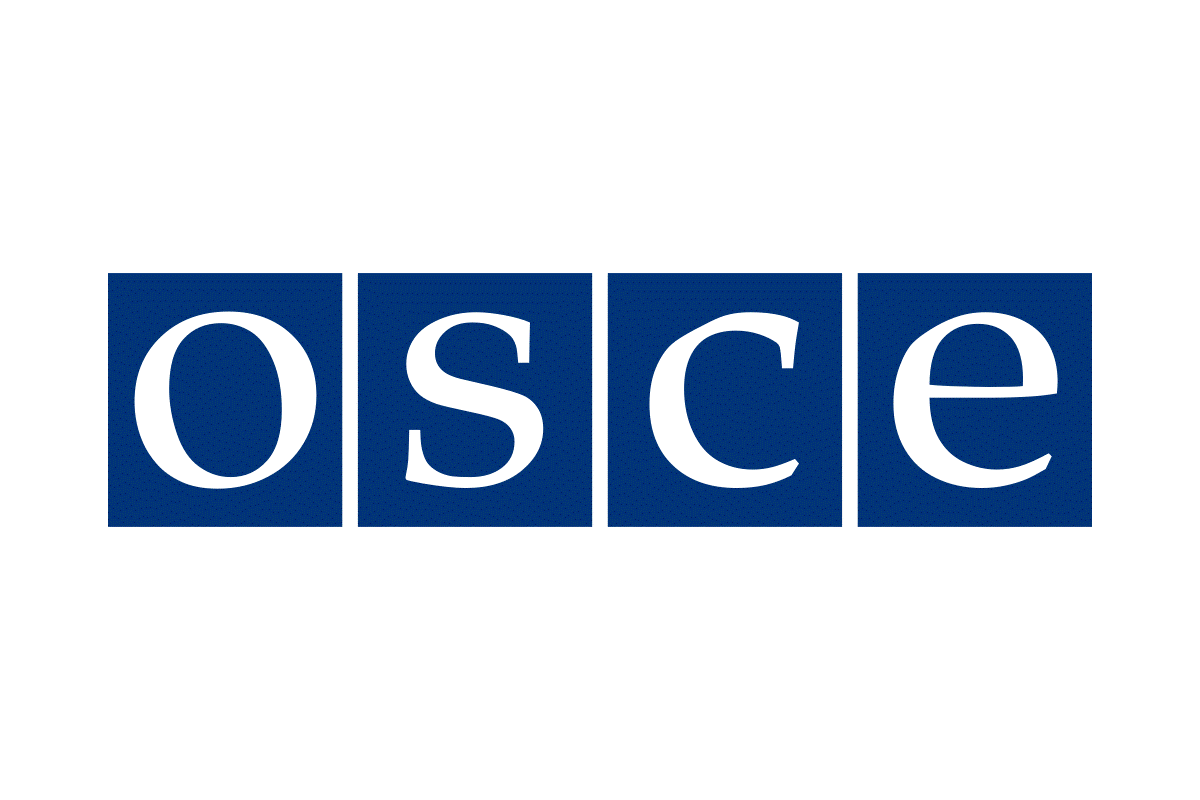Reporting hate speech to European institutions
Hate is never acceptable. You can help stop it.
TO WHOM AND HOW TO REPORT
When we encounter hate speech, we often wonder to whom and how to report it?
We bring here information about it that we hope will be useful to you and that will encourage you to report the hate speech you encounter, especially that directed at Roma, to the competent institutions.
Institutions are a key factor in the fight against hate speech and without their activity this phenomenon can hardly be contained and reduced. Therefore, here we bring information about the institutions of the European Union but also other organizations and institutions that, to a greater or lesser extent, are engaged in the fight against hate speech.

EUROPEAN UNION
Hate speech remains one of the most pervasive threats to equality and human dignity across Europe. Ethnic minorities — and in particular the Roma community — continue to face harmful stereotypes, online abuse, and even hate-motivated violence. In response, the European Union has developed a series of legal, institutional, and policy tools to combat this form of discrimination and promote inclusion.
EUROPEAN UNION LEGISLATION
Hate motivated crime and speech are illegal under EU law. One of the EU’s core legal instruments in this area is the 2008 Council Framework Decision on combating racism and xenophobia (2008/913/JHA). It obliges all Member States to criminalise public incitement to violence or hatred based on race, colour, religion, descent or national or ethnic origin — both online and offline. While implementation still varies between countries, it provides a legal basis to address hate speech at the European level.
The Charter of Fundamental Rights of the EU, which has had binding legal force since 2009, also prohibits discrimination on the grounds of race or ethnic origin (Article 21), reinforcing the commitment to equality and non-discrimination.
The EU Anti-Racism Action Plan 2020–2025 was adopted In 2020 by the European Commission, which explicitly recognises structural racism, including anti-Gypsyism (discrimination of Roma). The plan urges Member States to strengthen enforcement of anti-hate laws, cooperate with civil society, and ensure victims of hate receive proper support.
The list of «EU crimes» went in December 2021 beyond by including hate speech and hate crime" under Article 83(1) of the Treaty on the Functioning of the European Union (TFEU). This would allow the EU to propose harmonised rules across Member States, extending criminalisation beyond racism and xenophobia to other forms of hatred.
In parallel, the EU Roma Strategic Framework for Equality, Inclusion and Participation (2020–2030) sets out ambitious goals to improve Roma inclusion. One of its cross- cutting priorities is to combat hate speech and disinformation, urging Member States to report on anti-Roma hate incidents and to actively engage Roma voices in the development of national policies.
INITIATIVES TO PREVENT ONLINE HATE SPEECH
To specifically address online hate speech, the European Union has implemented several key initiatives—both voluntary and legally binding—that increase the responsibility of digital platforms and establish effective mechanisms to tackle this issue:
The EU Code of Conduct on Countering Illegal Hate Speech Online— since 2016 is a voluntary agreement between the European Commission and major tech platforms such as Facebook, YouTube, X (formerly Twitter), and TikTok—has committed companies to review and remove illegal hate content within 24 hours. This code is regularly monitored by civil society organizations across Member States. In January 2025, this initiative was upgraded to Code of Conduct+, integrated into the Digital Services Act (DSA), with stricter transparency requirements, defined performance targets (such as reviewing at least two-thirds of flagged hate speech reports within 24 hours), and cooperation with third-party monitoring organizations.
Enacted in 2022 and fully applicable since 2023–2024, the Digital Services Act provides a binding legal framework regulating very large online platforms: it obliges them to assess and mitigate systemic risks—including hate speech—and to act promptly when illegal content is flagged. Besides requiring transparency on content moderation and algorithms, non-compliance can lead to heavy fines (up to 6% of global turnover).
OTHER EUROPEAN UNION INSTITUTIONS
The European Union Agency for Fundamental Rights (FRA) recognizes that online hate speech is a «growing problem in today’s digitalised societies». In 2023, they did a report on: Online content moderation - Current challenges in detecting hate speech, addressing that women, Black people, Jews and Roma are often targets of online hate speech. The study reports that online hate proliferates where human content moderators miss offensive content, and that algorithms (AI) are prone to errors — they may multiply errors over time and may even end up promoting online hate—.
EUROPOL, through its European Cybercrime Centre (EC3), Europol coordinates efforts against cybercrime, including hate crimes and online hate speech. It publishes reports and facilitates cooperation among police and judicial authorities across Member States to investigate and prosecute these offenses.
The European Parliament (EP) has adopted several resolutions and studies calling for stronger measures against online hate speech, including tougher regulations for digital platforms. It played a key role in pushing for legislation such as the Digital Services Act.
The Directorate-General for Justice and Consumers (DG JUST) is the responsible body for monitoring how EU member states apply anti-discrimination laws and hate speech regulations, including through funding projects, studies, and campaigns. DG Justice and Consumers works closely in coordination with the European Union Agency for Fundamental Rights (FRA) to collect data, monitor hate speech trends, and support evidence-based policies.
The European Court of Human Rights (ECHR) has addressed in several rulings cases involving hate speech or hate acts against minorities, including Romani communities. One example would be the case of Sampanis and Others v. Greece (Application No. 32526/05). The applicants, 11 Greek nationals of Roma origin, were subjected to discriminatory treatment when their children were initially denied enrollment in the local primary school and later placed in a segregated annex school, which was located five kilometers away and consisted of prefabricated classrooms. The Court emphasized that such segregation amounted to discrimination and that the authorities had failed to take appropriate measures to prevent it.
So far, there are no rulings by the European Court of Human Rights that specifically focus on online hate speech against the Romani community. However, the European Court of Human Rights does address hate speech more broadly in its official factsheet on the subject. The document explains the Court’s approach to hate speech, emphasizing the balance between protecting freedom of expression and preventing speech that incites hatred or violence. It clarifies that not all offensive or provocative speech is punishable, but hate speech that threatens the rights and safety of others can be restricted under the European Convention on Human Rights. This factsheet can be consulted here: ECHR Factsheet on Hate Speech.
OTHER EUROPEAN INSTITUTIONS
When it comes to other European institutions for reporting hate speech, there isn’t a mechanism in place to send a report directly to the organisations and agencies. Normally they receive data from civil organisations or government directly. After that they make reports and case studies with the information and do action plans for countering hate speech.
COUNCIL OF EUROPE

Council of Europe is an international organisation promoting human rights, democracy, and the rule of law in Europe. It was founded in 1949 and has currently 46 member states. The Council created also the European Convention on Human Rights (ECHR) and set the European Court of Human Rights, which are central to the work of the organisation in protecting human rights.
Recommendation (CM/Rec (2022) 16) on Combating Hate Speech was adopted in 2022 by the Committee of Ministers. The document was prepared by the Committee of Experts on Combating Hate Speech (ADI/MSI-DIS) and it provides guidance to member states to implement a comprehensive set of legal and non-legal measures. It is built on international human rights standards and case law of the European Court of Human Rights. The document also pays close attention to the online environment, where hate speech can be mostly found these days.
The Committee of Experts that adopted this important recommendation was established as a subordinate body to the Steering Committee on Anti-discrimination, Diversity, and Inclusion (CDADI) and the Steering Committee on Media Information Society (CDMSI).
The European Commission against Racism and Intolerance (ECRI) also monitors and counters hate speech. In 2015, it issued its General Policy Recommendation (GPR No. 15) on Combating Hate Speech. The document contains a list of recommended measures against hate speech, including in areas of legislation and policies, data collection, victim support, self-regulation, and counter-speech by people in positions of influence, like public officials, politicians, and religious leaders. The ECRI is a unique human rights expert body that monitors action against racism, discrimination, and intolerance in Europe. However, the body itself is not entitled to receive individual complaints, which are handled by the European Court of Human Rights.
The European Court of Human Rights (ECtHR) is an international court set in 1959. It rules on individual or state applications alleging violations of the civil and political rights set out in the European Convention on Human Rights. Still, to file a complaint to the ECtHR, you must first exhaust all domestic remedies in your home country. It rules on issues like hate speech and incitement to violence.

THE ORGANISATION FOR SECURITY AND CO-OPERATION IN EUROPE (OSCE)
The Organisation for Security and Co-operation in Europe (OSCE) is the world’s largest regional security organisation. It has 57 participating states from North America, Europe, and Asia. It acts as a forum for political dialogue and cooperative action on a wide range of security issues.
Ministerial Council Decisions 9/09 on combating hate crime (2009) and 13/06 on combating intolerance and discrimination and promoting mutual respect and understanding (2006). The countries in the Organisation for Security and Co-operation in Europe have committed to take different actions to address hate crime. The measures are based on these two documents that serve to address hate crime through robust data collection and monitoring, an effective criminal justice response, cooperation with civil societies, and comprehensive support to hate crime victims.
The Office for Democratic Institutions and Human Rights (ODIHR) is the human rights institution of the OSCE. It provides support, assistance, and expertise to participating states and civil societies to address hate crime and other forms of intolerance. Every year the Office presents consistent and reliable information on notable incidents, and policy responses from participating states, civil society organisations, and intergovernmental organisations on hate crime. The information and data are presented on their website and have been provided by National Points of Contact on Hate Crimes (NPCs), appointed by the governments of OSCE participating states. Incidents reported by civil society groups and intergovernmental organisations are also published.
Detailed hate incidents can be found on the same website, where there is a dedicated page where users can search and export information by country, type of crime, and bias motivation. The incidents presented are not comprehensive and reflect the quantity of detailed information reported by civil societies to ODIHR each year.
You can use the form below to report hate speech directed at Roma on the Internet. Based on the information provided, we will decide how to proceed. In certain cases, we will forward the information to the Office of the Ombudsman, who, as the competent institution, may take further legal measures.
If you wish to report hate speech on the Internet that is not primarily directed at Roma, you can also do so through the specialized interface of the Council of Europe focused on combating hate speech: https://www.coe.int/en/web/combating-hate-speech
How to report - All

